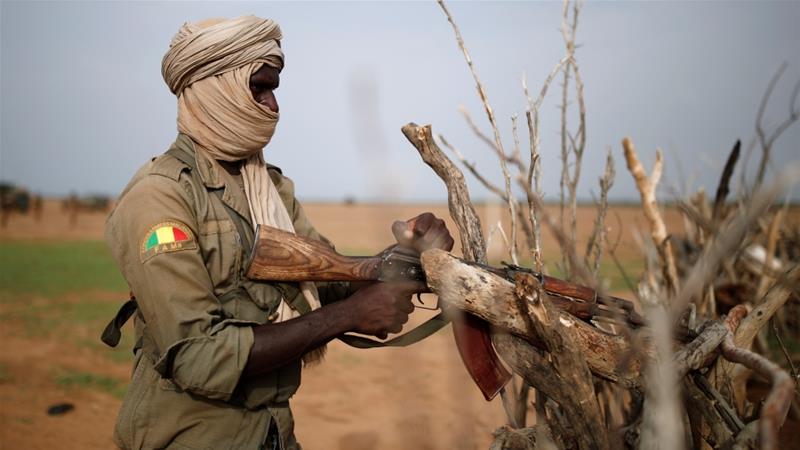
Officials from Mali's presidency, who declined to be named, said the judges will be sworn in on Monday [File: Luc Gnago/Reuters]
Nine judges chosen by presidential decree as part of a compromise intended to ease months-long political turmoil.
Mali's President Ibrahim Boubacar Keita appointed nine judges to the Constitutional Court by decree as part of a compromise intended to ease the country's months-long political crisis.
The Sahel nation is in the grip of a political impasse between Keita and an increasingly strident opposition intent on securing his resignation.
Last month, 11 people died over three days of unrest following an anti-Keita protest in the worst political strife Mali has seen in years.
Heads of government from the Economic Community of West African States (ECOWAS) stepped in, suggesting on July 27 the formation of a new unity government to include opposition members, while sticking by Keita.
They also urged the appointment of new judges to the Constitutional Court to resolve a festering election dispute, among other measures.
Much of Mali's current tension was sparked in April, when the Constitutional Court tossed out 30 results from long-delayed parliamentary elections - a move that benefitted Keita's party but triggered protests.
Mali's opposition June 5 Movement has repeatedly spurned the ECOWAS proposal and continues to demand the 75-year-old president's resignation.
Anti-Keita protests
On Friday, according to a presidential decree seen by the AFP news agency, Keita nevertheless appointed nine new judges to the court.
Officials from Mali's presidency, who declined to be named, said the judges will be sworn in on Monday. Opposition figures appear unlikely to back down, however.
The June 5 Movement earlier on Friday said it would stage nationwide anti-Keita demonstrations on Tuesday.
The group has been channelling deep anger over Mali's bloody eight-year armed uprising, a dire economy, and perceived government corruption.
The government has struggled to contain the conflict that first emerged in the north in 2012, before spreading to central Mali and neighbouring Burkina Faso and Niger. Thousands of soldiers and civilians have been killed.








No comments:
Post a Comment